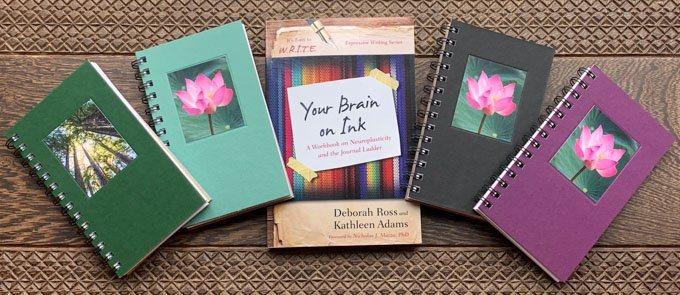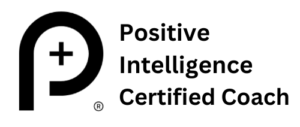
Why is it so hard to acknowledge that we have made progress of some kind? Stepping back even further, why is it so hard to even direct positive wishes towards ourselves?
After practicing lovingkindness meditation this week in the 15-Day Advanced Extension to the 30-Day Mindfulness Meditation Challenge, we talked about why it’s so much easier to extend well wishes to others, even difficult people, than it is to extend those same wishes to ourselves. The same dynamics apply to why it’s so hard to practice self-compassion.
My studies this year for my Search Inside Yourself Leadership Institute teacher certification training have been super enlightening around these questions. Contrary to common assumptions that self-compassion will lead to avoidance, ethical apathy, or less motivation or effort to change, research shows that the opposite is true in all of these cases. Studies by Dr. Kristin Neff and others suggest that self-compassion practice leads to a greater growth mindset, the belief that we have the ability to improve our lives and ourselves.
The idea that self-compassion is the most effective approach to meeting challenges shocked me. But as I experimented with directing well wishes (lovingkindness) toward myself and practicing self-acceptance, I found it to be transformative. (To cultivate more self-compassion in your own life, check out The Mindful Self-Compassion Workbook by Kristen Neff, PhD and Christopher Germer, PhD.)
Permission is Scarce on Both Ends of the Life Experience Spectrum
The weird thing is, we don’t only resist practicing self-compassion when we stumble or when life is hard for no fault of our own. We also resist acknowledging and celebrating our wins. Regardless of which end of the performance spectrum we find ourselves on in any given moment, many of us (and dare I say, women especially) find it uncomfortable to be nice to ourselves.
This became clear to me during a journaling exercise I did a few days ago. I’ve been putting my new Damselwings journal to work with the help of an insightful book by my friend Deborah Ross and coauthor Kathleen Adams, Your Brain on Ink: A Workbook on Neuroplasticity and the Journal Ladder.
Ripped from My Journal Pages
Rather than me telling you about the “ah ha” journaling moment, let me just reprint the prompts and my written responses. This particular exercise uses sentence stems, the beginning of sentences for the writer to complete and expand upon. (Sentence stems are italicized. Additions to my original responses are bracketed.).
I’ve been writing a journal since… my early teens. I remember a beautiful wooden journal that [my sister] Lisa gave me sometime in junior high school. I think it was my first one. I wrote disturbing, angst-ridden reflections in it after my dad committed suicide. I tore pages out of it in fear of them being read by others.
My relationship with my journal could best be described as…healthy. I use it for lots of things – content download, chronicling my life, emotional processing, intention setting, goal-clarification, creative idea capturing, deepening.
I turn to my journal…most days of the week, trying to capture gems of inspiration, get a snapshot of my emotional state of mind, but especially if I need to process something challenging. I used it for this during my breast cancer treatment. I realize how many intentional decisions I made while writing my book [Blooming into Mindfulness] to keep it (the story and lessons learned) positive, productive, uplifting.
I don’t write about…complaining about or criticizing others from a place of toxic resentment. I don’t write about how I wish others or situations would/should/could be different than they are. (Yay me! Big progress here!) [That parenthetical statement was journaled. It marked big progress on my journey.]
I wish I knew how to… N/A. When I find myself wishing I knew how to do something, I generally just go figure out how to do it (or, whether I really need to know how to do it anyway). I feel empowered to do so, which is a privilege.
Reflection
[This reflection step is the critical new piece of journaling guidance that I’ve learned from Your Brain on Ink. It’s what adds mindfulness into the process and supports self-directed neuroplasticity – changes in the brain’s neural structure and functionality that support positive intentions and habit formation.]
As I read this I notice…a discomfort with how healthy and positive a picture I have of myself through my entries. I feel joy and liberation in my positive outlook, intention, and self-management. But then I quickly feel like “Hey Martha, it’s kind of ego-y to toot your own horn to yourself that way.” This feeling lands a little heavy in my body, deeper down in my abdomen. Don’t feel it in my heart area.
Are there actions or steps to take? If so, what are they?…Recognize it’s the Observer who sees your health, your alignment, and your purpose. Release fear of joy. Know that your sense of aligned joy is what inspires and serves others. You want more of it, not from a greedy place, but from a service and impact place. You want more joy for your friends, family, and all beings. You want others to feel good about themselves. How can you do that if you resist this feeling of joy in yourself?
[Note: The Observer, or Witness, is the wisest, ever-present part of us, above our thinking mind and well beyond ego. Reading that last paragraph after I finished journaling, I noticed that I had unconsciously written it in the second person POV, whereas all the rest was first person. A little spooky if I think about it too much, so I’ll just reframe it as being really cool.]
3 Feeling Words: transformed, grateful, joyful.
Unlocking the Permission Gate
This Brain on Ink exercise taught me that along with attention, focus, self-awareness, compassion, gratitude, and intention, permission is yet another skill that we need to strengthen as part of our mindfulness tool set. We can’t maximize use of any of the other tools if we can’t first give ourselves permission to love ourselves fully, to set limitless intentions, to feel joy with no holds barred, and to celebrate our hard-earned wins.
If you’d like to order a Damselwings journal for yourself or for gifts, contact me and I’ll set you up!
***
If you enjoyed today’s post and are not yet a subscriber, please join my Readers Circle via the sign-up box in the right margin and receive my free ebook Six Playfully Mindful Strategies to Beat Procrastination and Boost Productivity. You’ll also receive updates on my book Blooming into Mindfulness, blog posts, and photography, speaking engagement, and workshop news.
Visit https://www.damselwingsphotography.com/ to sign up for special offers on my mindfulness-inspired artwork. Email is much more reliable than social media in getting information to you in a timely fashion, so subscribe to make sure you’re in the loop! (I promise not to share your address or send you spam.)
And if you know someone else who might benefit from an extra dose of calm in their lives, please spread the word! Social media likes and shares are always appreciated.
Finally, if you find typos anywhere on my site, I’d be grateful if you let me know. I hate typos! Contact me so that I can correct the error. Thank you!


